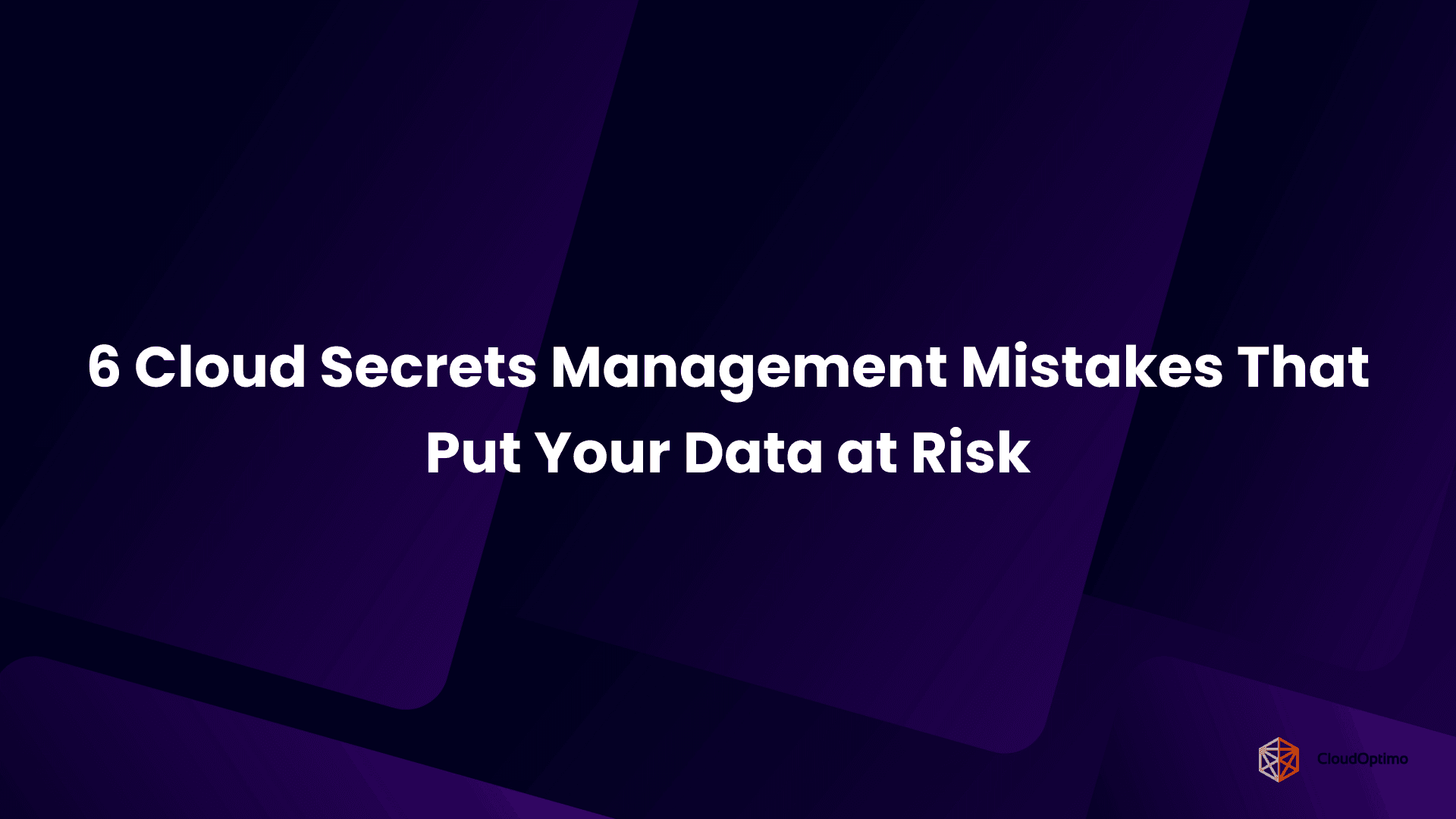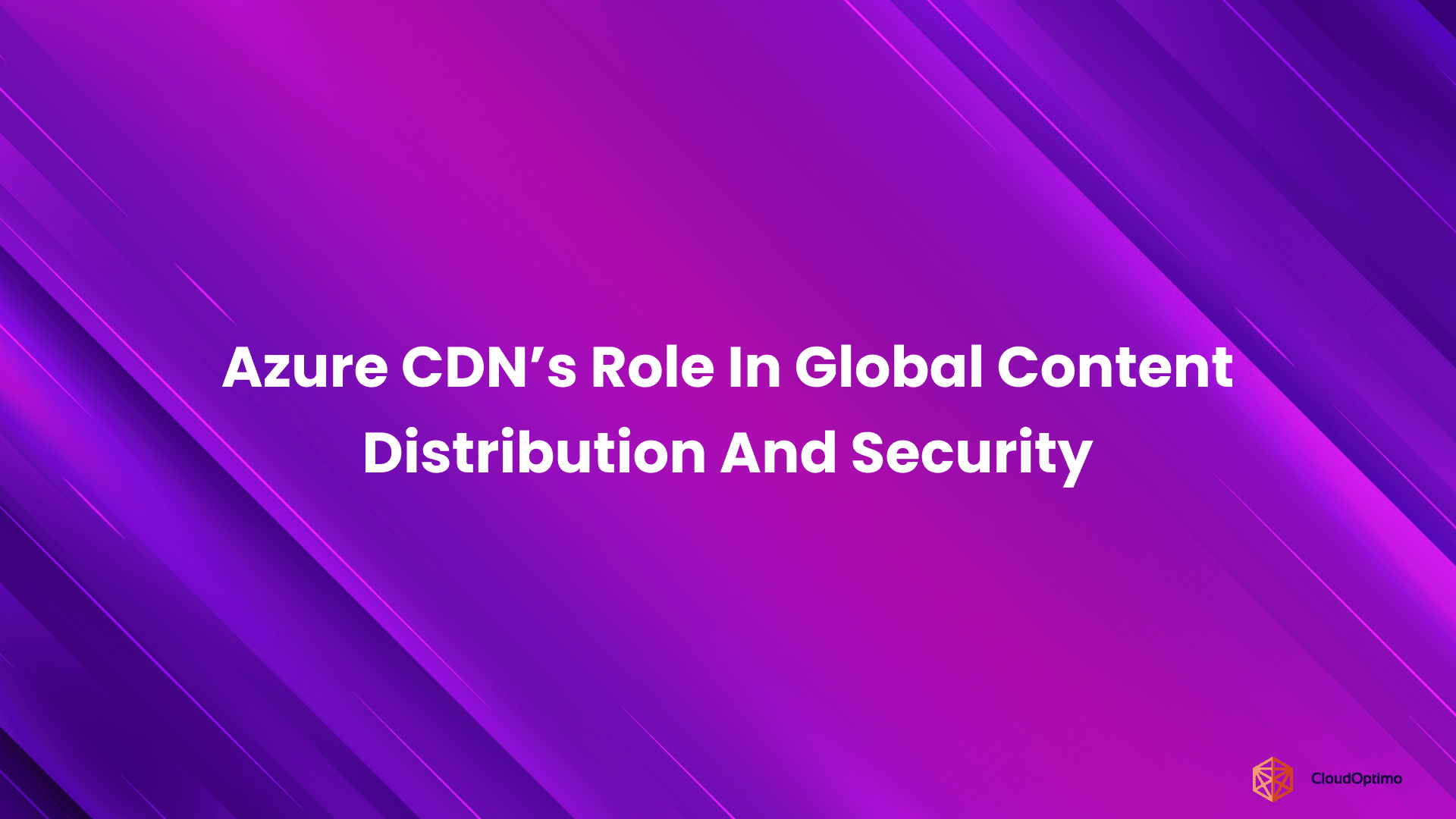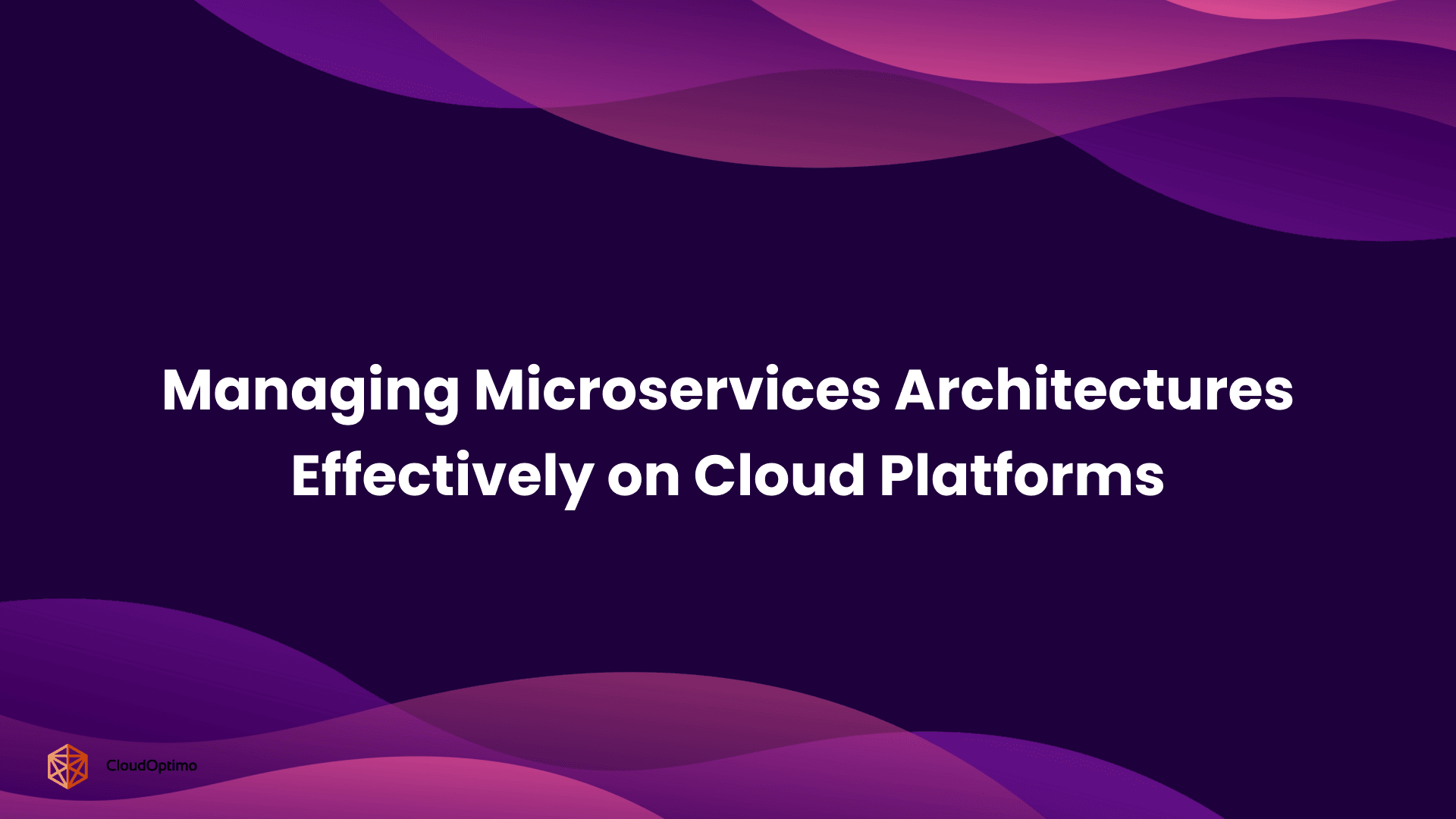Cloud computing has become an essential part of modern business operations, offering companies the scalability, flexibility, and efficiency needed to thrive. In 2024, the competition among cloud service providers (CSPs) continues to intensify as they introduce new services, improve infrastructure, and optimize pricing. Choosing the right CSP is crucial for businesses seeking reliable services, enhanced security, and seamless integration across multiple platforms.
This blog explores the top 10 cloud service providers of 2024 and provides an overview of their features, market relevance, and key strengths. Additionally, we will highlight important considerations when selecting a cloud provider and how CloudOptimo can enhance your cloud experience. Whether you're looking for a high-performing infrastructure, competitive pricing, or advanced AI and machine learning tools, this guide will help you make the right choice.
We will also discuss how CSPs compare to on-premises infrastructure and examine the top benefits of cloud computing to illustrate why so many enterprises are moving their workloads to the cloud.
History Before Cloud Service Providers
Before cloud service providers (CSPs) emerged, businesses primarily relied on on-premises infrastructure, which involved substantial capital investment, maintenance, and management. This traditional model often posed challenges, as organizations had to predict their computing needs well in advance and invest accordingly, leading to limitations in scalability and flexibility.
In the early days of computing, companies operated on local servers and mainframes, managing their own hardware and software. This setup came with significant drawbacks, including high costs, lengthy deployment times, and difficulties in data management and recovery.
The introduction of virtualization in the late 1990s marked a pivotal shift in the IT landscape. Virtualization allowed multiple virtual machines to run on a single physical server, paving the way for more efficient resource utilization and setting the stage for the rise of cloud computing.
By the mid-2000s, companies like Amazon Web Services (AWS) began offering cloud services, enabling businesses to rent computing resources on demand. This revolutionary shift transformed the way organizations approached IT. With cloud computing, companies could scale their operations without the burden of extensive capital expenditure. The flexibility and cost-effectiveness of these cloud solutions quickly gained popularity, leading to the establishment of various CSPs that now dominate the market.
What Are Cloud Service Providers (CSPs)?
Today Cloud Service Providers (CSPs) offer on-demand computing resources such as storage, servers, databases, and networking solutions, enabling businesses to operate flexibly without investing in physical infrastructure. CSPs provide a wide range of services, including Infrastructure-as-a-Service (IaaS), Platform-as-a-Service (PaaS), and Software-as-a-Service (SaaS).
Major providers like AWS, Azure, and Google Cloud have built global infrastructure networks to offer seamless scalability, high availability, and redundancy. Additionally, CSPs often provide advanced security, AI tools, and analytics platforms, making them a vital part of digital transformation strategies.
These providers play a critical role in supporting businesses of all sizes, from startups looking to minimize upfront infrastructure costs to enterprises leveraging multi-cloud environments to optimize performance. With an ever-growing demand for cloud-based solutions, understanding the key players in the CSP space helps companies align their IT strategy with their business goals.
| Service Model | Description | Examples | Use Case |
| IaaS | Virtualized resources like servers and storage | AWS EC2, Azure VMs, Google Compute Engine | Hosting virtual machines and storage solutions |
| PaaS | Platforms for developing and deploying apps | Microsoft Azure App Services, AWS Elastic Beanstalk | Web app development and deployment |
| SaaS | Fully managed applications | Google Workspace, Microsoft 365 | Collaboration tools, CRMs, and productivity apps |
Cloud Service Providers vs. On-Premises Infrastructure: Key Benefits
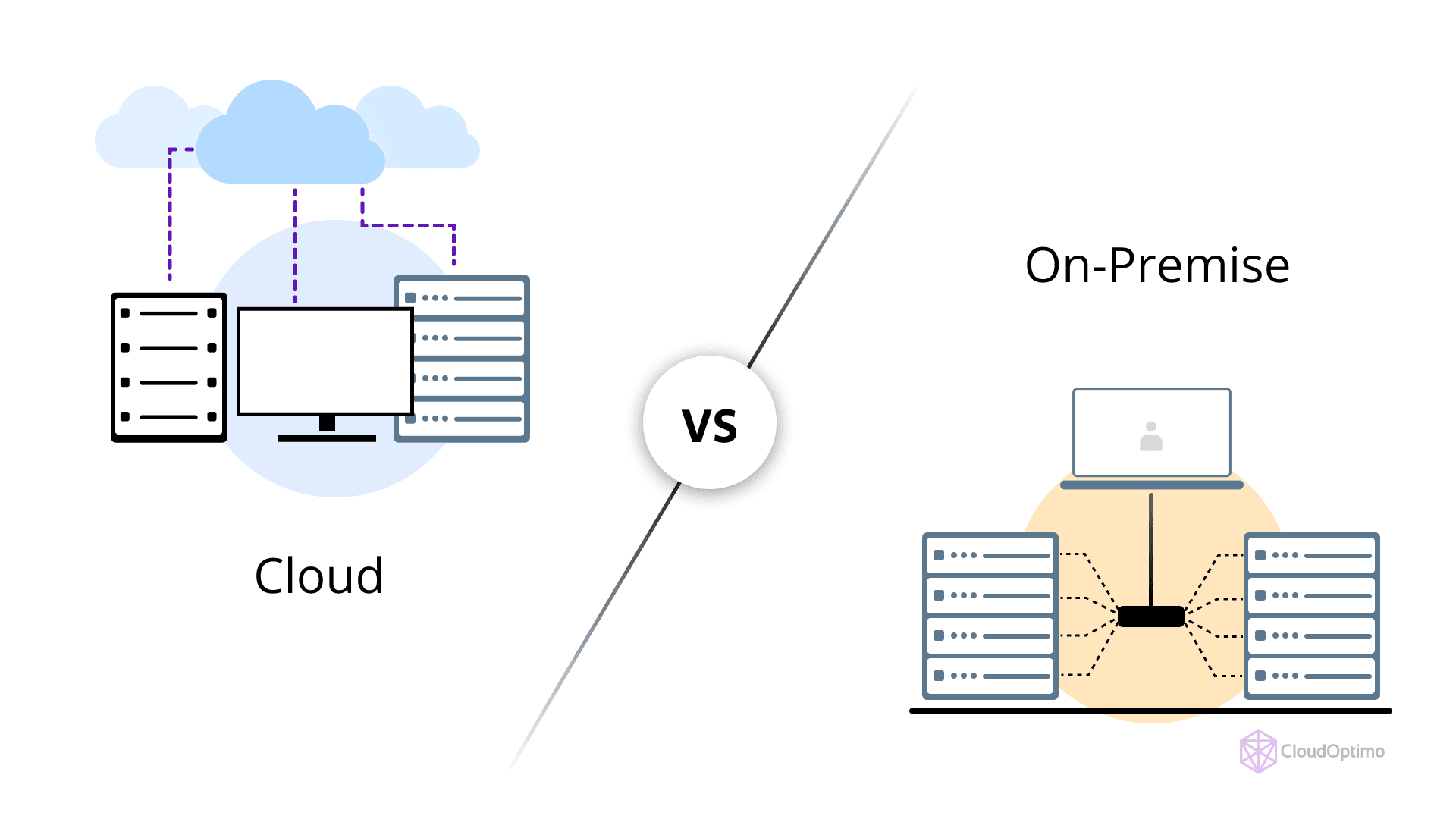
Businesses once relied solely on on-premises data centers to manage their operations. However, the adoption of cloud computing has introduced several advantages that make it a more appealing option. One of the key benefits of cloud service providers (CSPs) is scalability. With cloud infrastructure, businesses can easily adjust their computing resources to meet demand without over-provisioning or investing in excess hardware.
Another major benefit is cost-efficiency. On-premises setups require significant upfront investment and ongoing maintenance costs, while cloud providers operate on a pay-as-you-go model. Companies can also benefit from global accessibility, as cloud providers maintain data centers worldwide, enabling users to access services from any location with minimal latency.
Additionally, disaster recovery and data security are easier to manage in the cloud. CSPs offer built-in backup solutions and adhere to industry compliance standards, minimizing downtime and reducing the risk of data breaches. With providers taking care of updates and patches, businesses can focus on growth instead of infrastructure management.
In summary, shifting from on-premises to cloud infrastructure empowers organizations with agility, security, and cost savings—critical elements for success in a competitive environment.
| Factor | Cloud Service Providers | On-Premises Infrastructure |
| Initial Cost | Low (Pay-as-you-go model) | High (Hardware investment) |
| Scalability | High (Instantly scalable) | Limited (Requires new hardware) |
| Maintenance | Managed by the provider | Managed internally (costly) |
| Security | Built-in security features | Must be managed in-house |
| Disaster Recovery | Automated and built-in | Requires manual setup and management |
| Deployment Speed | Fast (minutes or hours) | Slow (days or weeks) |
Key Factors to Consider When Selecting a Cloud Service Provider
Choosing the right cloud service provider is crucial for businesses looking to leverage cloud technology effectively. Here are the key factors to consider:
- Reliability and Performance
- Uptime guarantees: Look for providers offering 99.99% or higher uptime SLAs.
- Global infrastructure: Ensure the provider has data centers in regions relevant to your business.
- Network performance: Consider latency, throughput, and connectivity options.
- Security and Compliance
- Data encryption: Verify both at-rest and in-transit encryption capabilities.
- Compliance certifications: Ensure the provider meets industry-specific standards (e.g., HIPAA, GDPR, SOC 2).
- Security features: Evaluate offerings like firewalls, intrusion detection, and access controls.
- Scalability and Flexibility
- Auto-scaling capabilities: Look for providers that can automatically adjust resources based on demand.
- Resource diversity: Ensure a wide range of compute, storage, and networking options.
- Multi-cloud and hybrid cloud support: Consider providers that allow for flexible deployments.
- Cost and Pricing Models
- Transparent pricing: Look for clear, easy-to-understand pricing structures.
- Pay-as-you-go options: Ensure the ability to scale costs with usage.
- Cost management tools: Evaluate built-in features for monitoring and optimizing spend.
- Support and Service Level Agreements (SLAs)
- 24/7 support availability: Ensure round-the-clock access to technical assistance.
- Response time guarantees: Look for clearly defined SLAs for issue resolution.
- Documentation and resources: Assess the quality and depth of self-help materials.
- Integration and Ecosystem
- API availability: Ensure robust APIs for integration with your existing tools and workflows.
- Marketplace offerings: Consider the availability of third-party tools and services.
- Developer tools: Evaluate the provider's offerings for streamlining development and deployment.
- Data Migration and Exit Strategy
- Migration support: Look for tools and services to facilitate smooth data transfer.
- Data portability: Ensure you can easily move your data if you decide to switch providers.
- Lock-in avoidance: Consider providers that use open standards and formats.
With these key factors in mind, let's examine the top cloud service providers of 2024, each of which has demonstrated excellence in many of these areas.
Top Cloud Service Providers of 2024
As the cloud computing landscape continues to evolve, several providers have emerged as leaders in the field. Here’s a list of top 10 Cloud Service Providers of 2024 By Market Share:
- AWS
- Microsoft Azure
- Google Cloud Platform
- IBM
- Oracle Cloud
- Alibaba Cloud
- Tencent Cloud
- Huawei Cloud
- DigitalOcean
- Linode (Akamai)
Here’s an overview of the top cloud service providers in 2024:
1. Amazon Web Services (AWS)
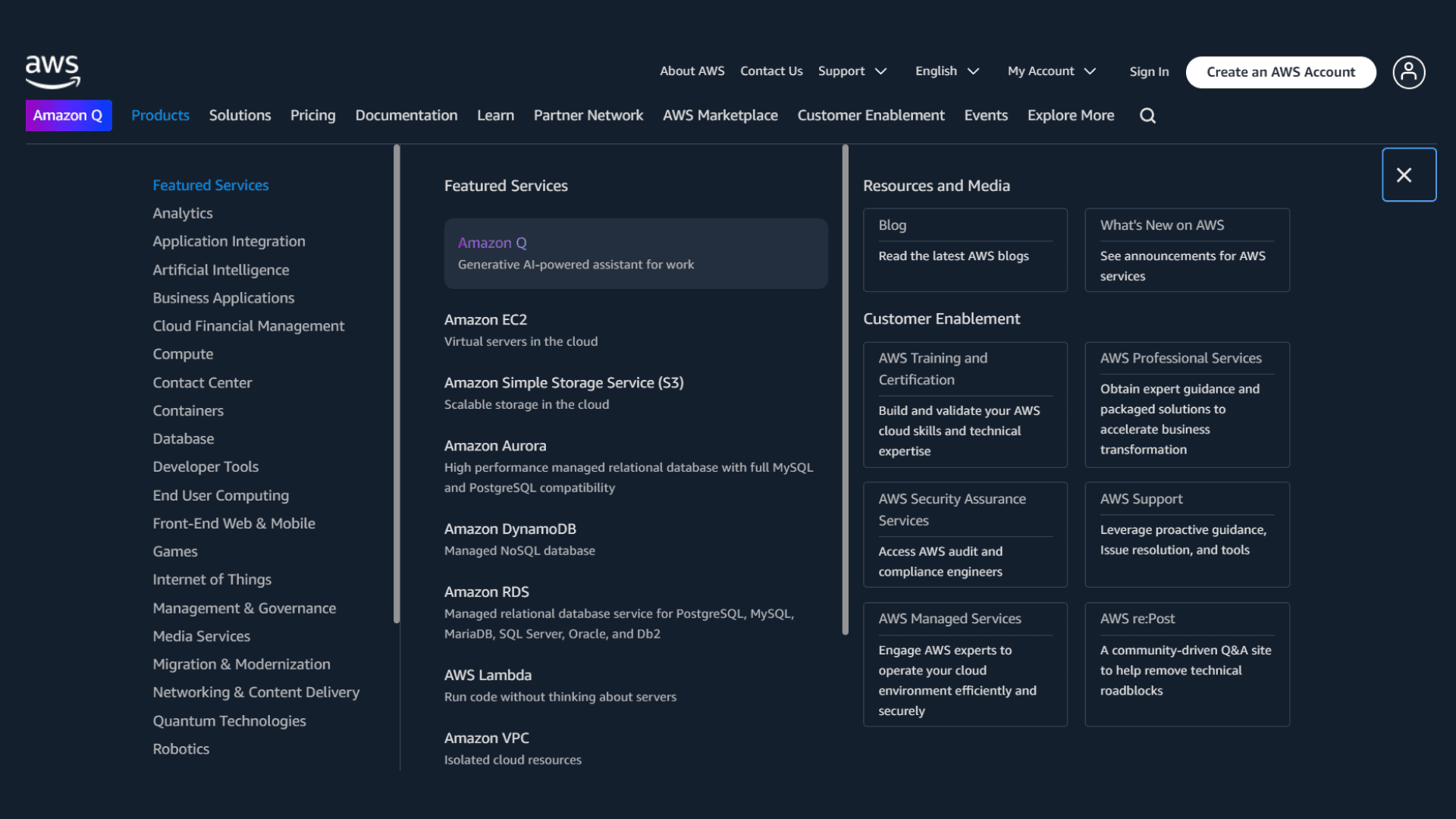
- Market Share: 32%
- Regions: 30+
- Availability Zones: 99+
Amazon Web Services (AWS) stands as the largest cloud service provider globally, offering an extensive suite of cloud services designed for businesses of all sizes. Launched in 2006, AWS has become synonymous with cloud computing due to its vast range of services, including Elastic Compute Cloud (EC2) for scalable virtual servers, Simple Storage Service (S3) for secure storage, and Lambda for serverless computing. AWS is known for its global reach, providing data centers in over 30 regions, ensuring low-latency access for customers. Its advanced AI tools, particularly SageMaker, enable organizations to build, train, and deploy machine learning models efficiently. With robust security measures and compliance certifications, AWS is trusted by various industries, from startups to Fortune 500 companies, for e-commerce, financial services, healthcare, and AI/ML applications.
2. Microsoft Azure
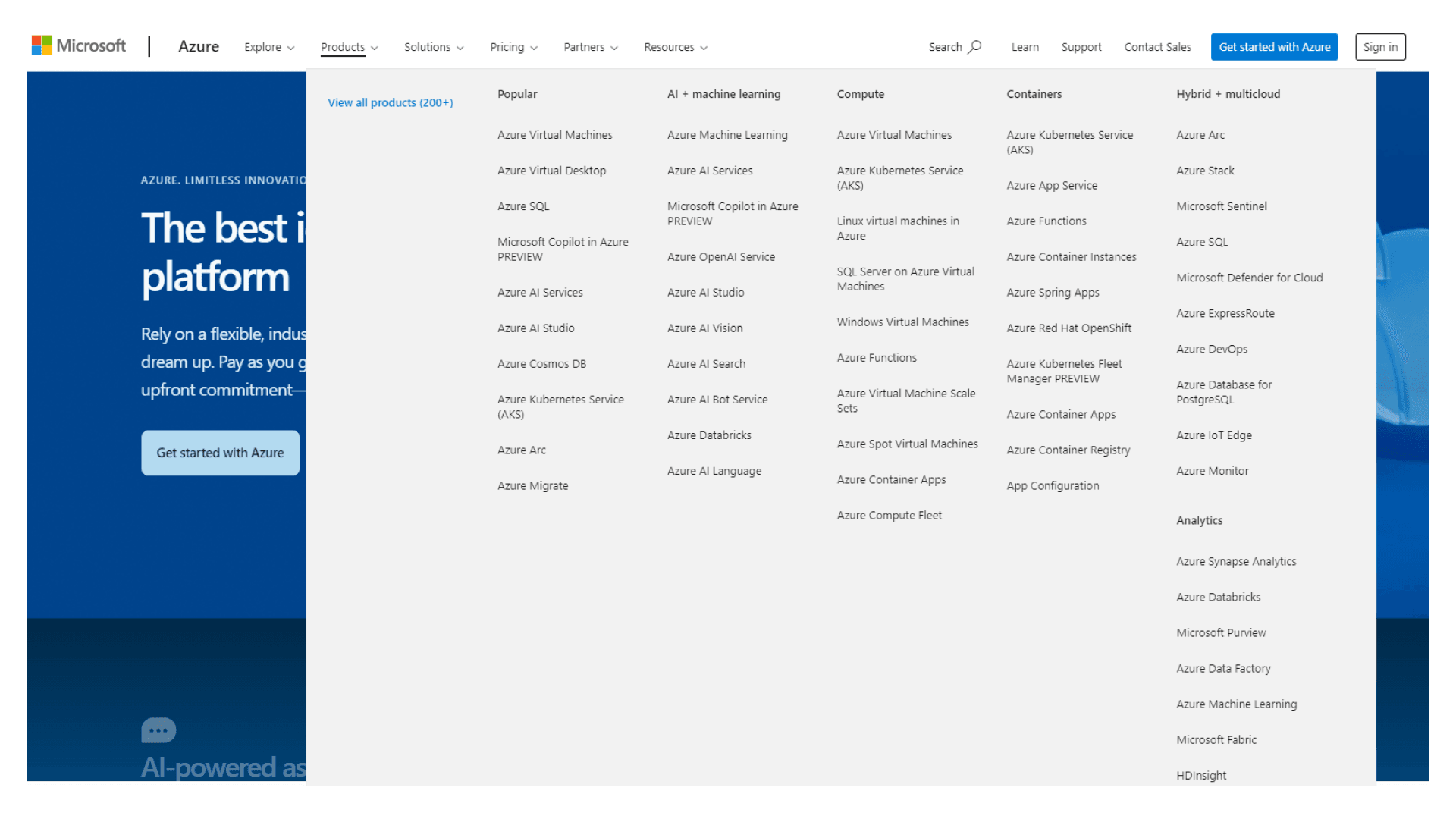
- Market Share: 22%
- Regions: 60+
- Availability Zones: 200+
Microsoft Azure has established itself as a formidable player in the cloud computing space, particularly renowned for its integration with Microsoft products like Office 365 and Dynamics. Launched in 2010, Azure supports a wide range of services, including Azure Virtual Machines for both Windows and Linux workloads, Azure Kubernetes Service for container orchestration, and Azure AI, a suite of cognitive services and APIs for machine learning and data analytics. With over 60 regions and 200 availability zones, Azure offers strong redundancy and scalability, making it ideal for hybrid cloud deployments. Its commitment to enterprise solutions is underscored by Azure DevOps, which provides tools for continuous integration and delivery (CI/CD) to streamline software development. Organizations across industries leverage Azure for hybrid cloud solutions, enterprise IT, and advanced AI applications.
3. Google Cloud Platform (GCP)
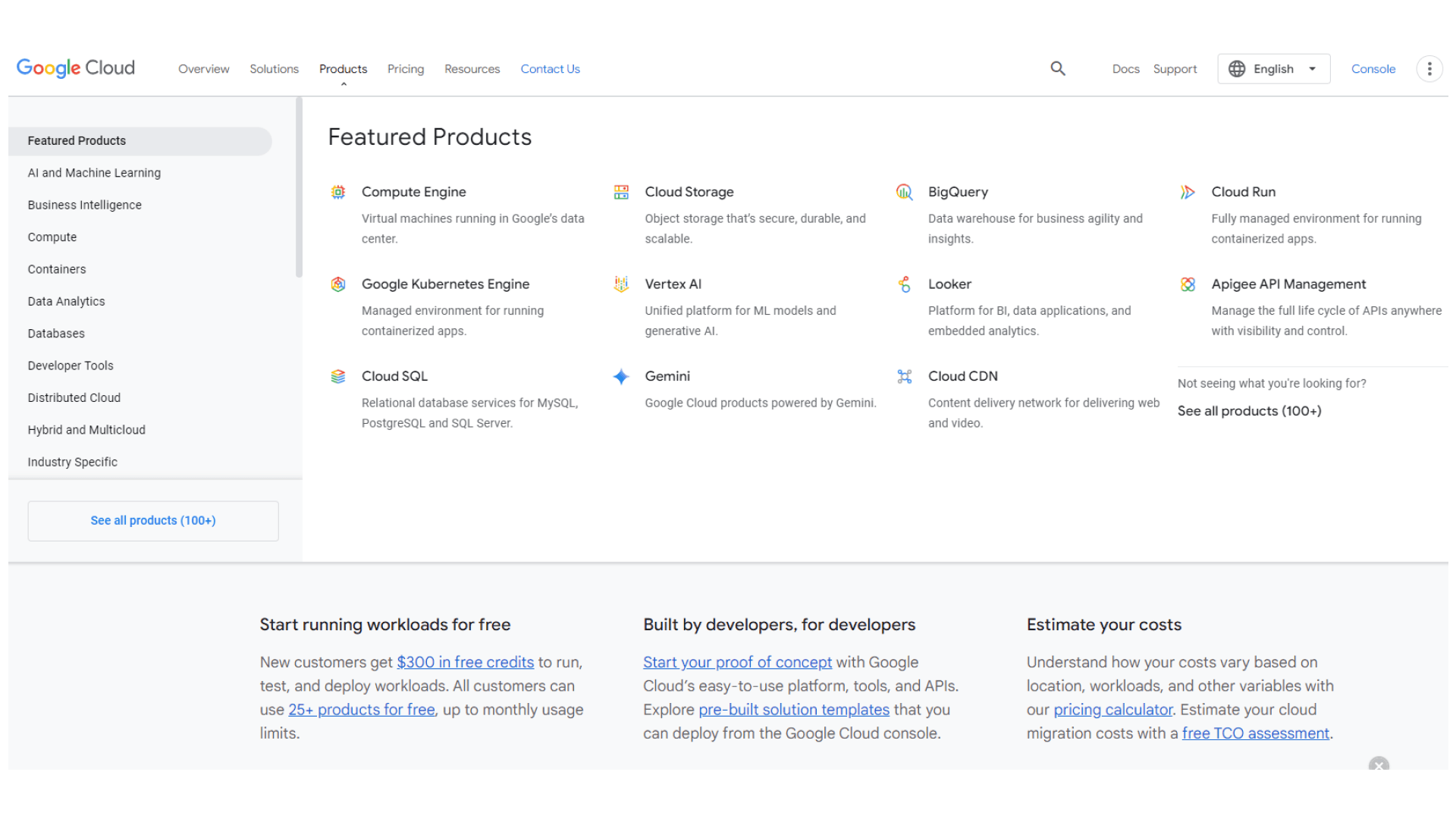
- Market Share: 11%
- Regions: 35+
- Availability Zones: 140+
Google Cloud Platform (GCP) has carved out a niche for itself by focusing heavily on data analytics, artificial intelligence, and machine learning. It provides organizations with the tools they need to harness big data and advanced analytics capabilities. Services like Compute Engine offer customizable virtual machines, while BigQuery is a powerful data warehousing solution that allows users to run complex queries over vast datasets quickly. GCP is also home to TensorFlow Enterprise, an optimized framework for developing machine learning models. Its Anthos platform enables businesses to manage hybrid and multi-cloud environments seamlessly. With over 35 regions and 140 availability zones, GCP ensures reliable performance and low latency. Industries such as retail, finance, and gaming are increasingly turning to GCP to leverage its advanced AI and data solutions for competitive advantage.
4. IBM Cloud
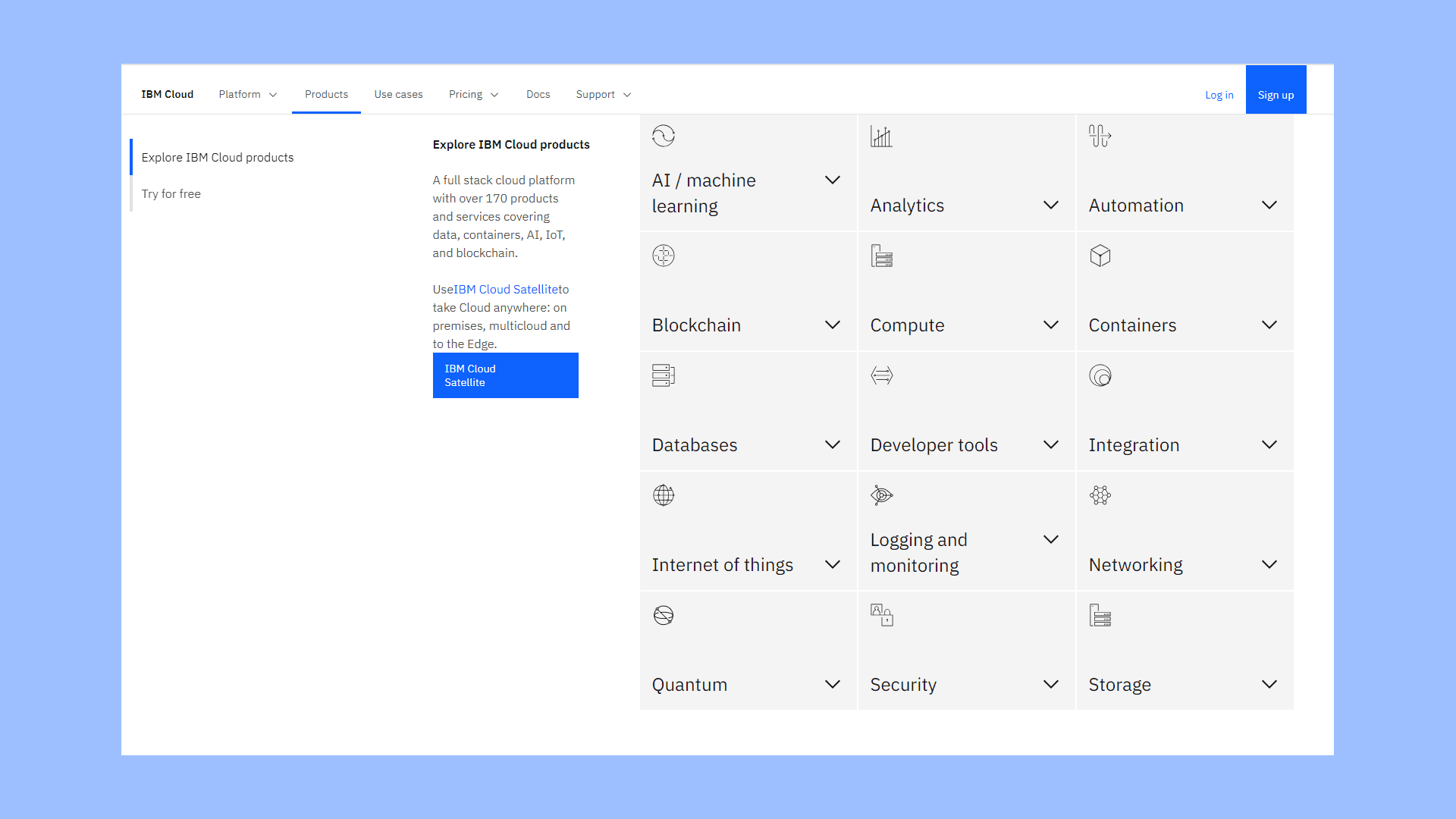
- Market Share: 4%
- Regions: 6
- Availability Zones: 60+
IBM Cloud is known for its enterprise-grade solutions and strong emphasis on hybrid cloud deployments. The platform provides a comprehensive set of services tailored for industries requiring high levels of security and compliance. Its Watson AI capabilities are particularly noteworthy, offering businesses advanced tools for language processing, speech recognition, and machine vision. With IBM Cloud Bare Metal, organizations can access dedicated servers optimized for high-performance tasks, ensuring that critical workloads run efficiently. The IBM Blockchain Platform provides innovative tools for developing and managing blockchain solutions, making it a popular choice for industries like finance and supply chain management. IBM Cloud also focuses on providing strong security features, making it ideal for sensitive industries like healthcare and finance, where data protection is paramount.
5. Oracle Cloud
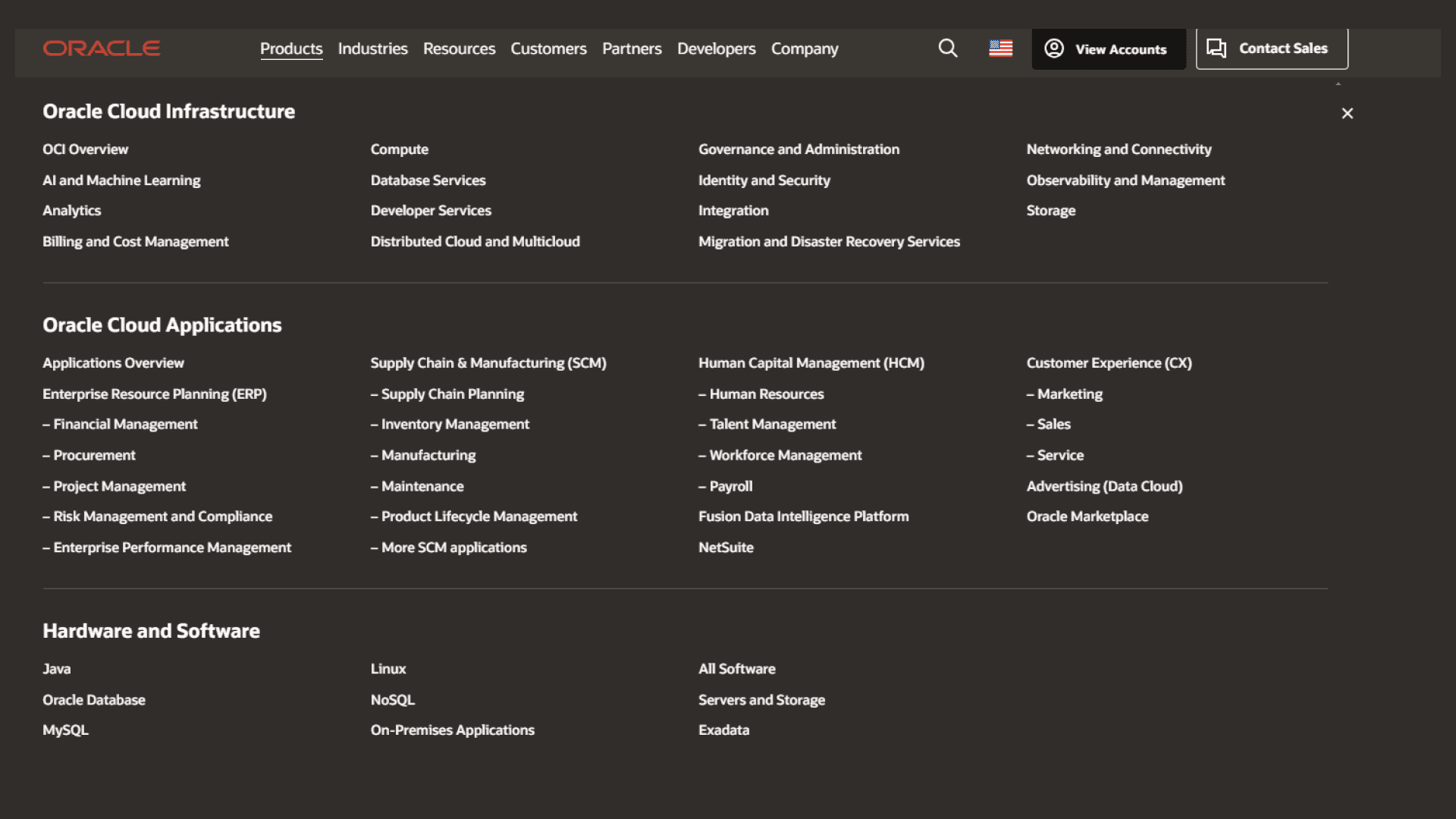
- Market Share: 3%
- Regions: 45+
- Availability Zones: 100+
Oracle Cloud is a leading provider for businesses looking for robust database solutions and enterprise applications. With its focus on mission-critical workloads, Oracle Cloud offers a comprehensive suite of services that includes Oracle Autonomous Database, which automates database management to improve efficiency and reduce operational costs. Its Oracle Cloud ERP delivers cloud-based enterprise resource planning solutions that streamline business operations. Additionally, Oracle Cloud VMware Solution allows organizations to migrate their VMware workloads to the cloud seamlessly. With over 45 regions and 100 availability zones, Oracle provides businesses with the reliability and scalability they need to thrive in today's competitive landscape. Oracle Cloud is particularly well-suited for industries that depend on extensive data management, such as finance, healthcare, and manufacturing, where database integrity and uptime are critical.
6. Alibaba Cloud
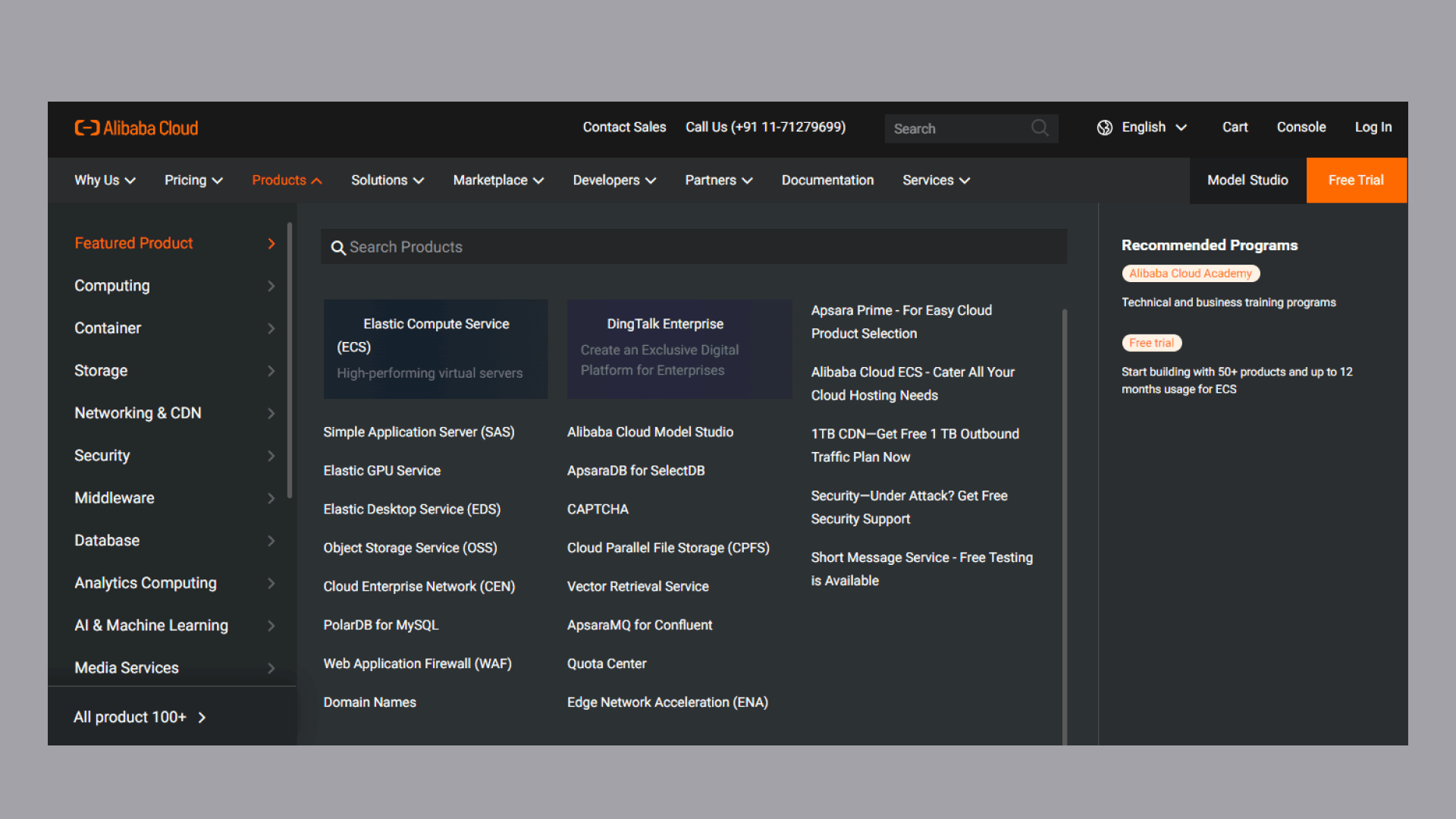
- Market Share: 5%
- Regions: 28
- Availability Zones: 92
Alibaba Cloud has risen to prominence as the leading cloud provider in China, offering a diverse array of services that cater to both local and international markets. With a strong focus on e-commerce and data analytics, Alibaba Cloud's Elastic Compute Service provides scalable computing resources, while MaxCompute serves as a powerful platform for big data analytics. Alibaba AI offers a suite of AI solutions tailored for various industries, including retail and finance. The platform's extensive reach across 28 regions and 92 availability zones ensures low-latency access for users. Alibaba Cloud is particularly appealing for businesses looking to expand into the Asian market, providing services that meet the demands of rapidly growing sectors such as e-commerce, logistics, and digital marketing.
7. Tencent Cloud
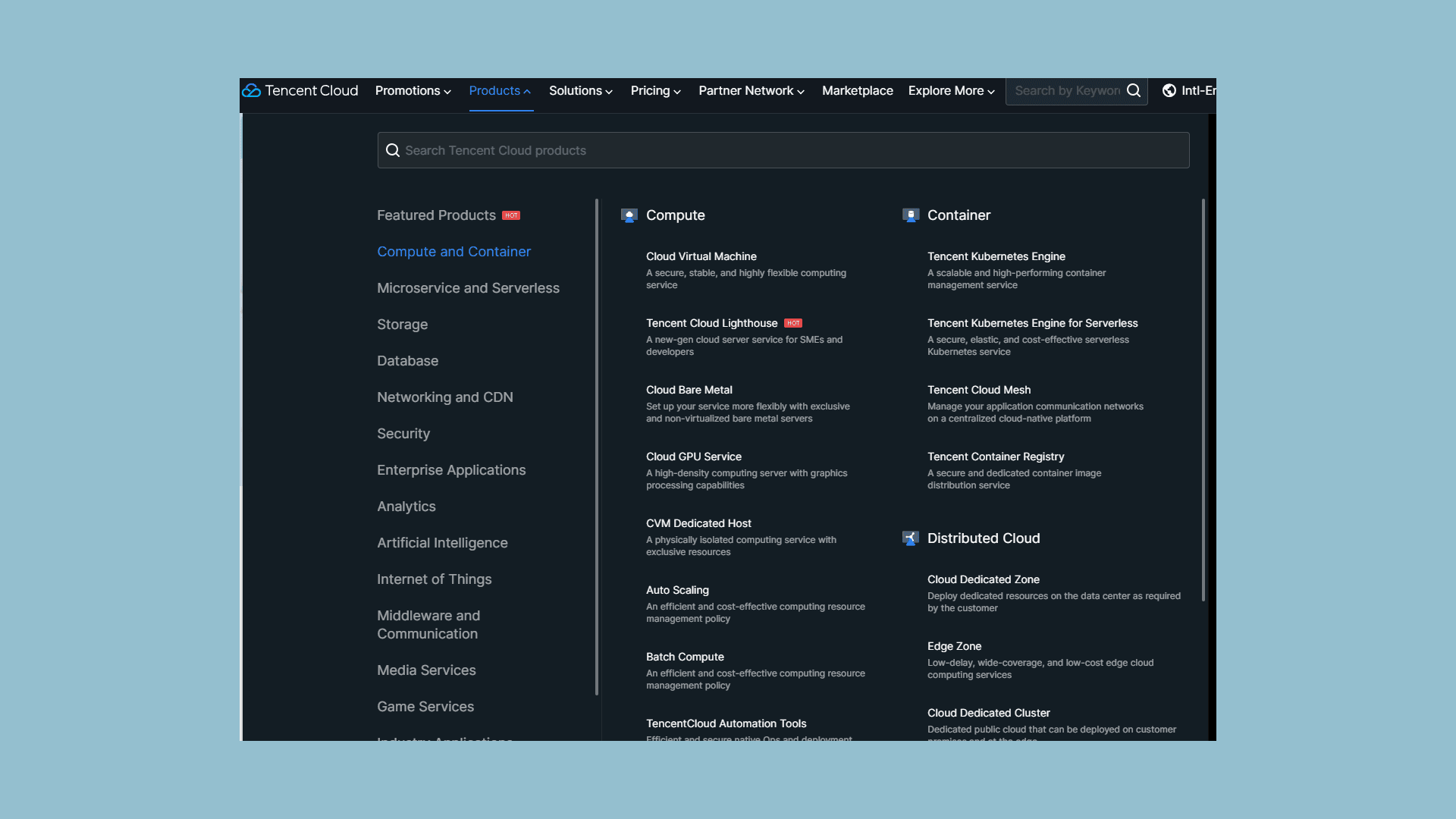
- Market Share: 2%
- Regions: 10+
- Availability Zones: 60+
Tencent Cloud is a significant player in the cloud market, especially in China, where it provides a robust portfolio of services aimed at gaming, social media, and video streaming. Its Game Cloud platform offers scalable resources tailored for online gaming, enabling developers to create engaging and responsive gaming experiences. Tencent AI provides advanced tools for natural language processing, speech recognition, and image analysis, making it an attractive option for businesses looking to integrate AI into their applications. With over 10 regions and 60 availability zones, Tencent Cloud ensures high availability and performance. The provider is ideal for industries like gaming and entertainment, where rapid scalability and innovative technology solutions are critical to success.
8. Huawei Cloud
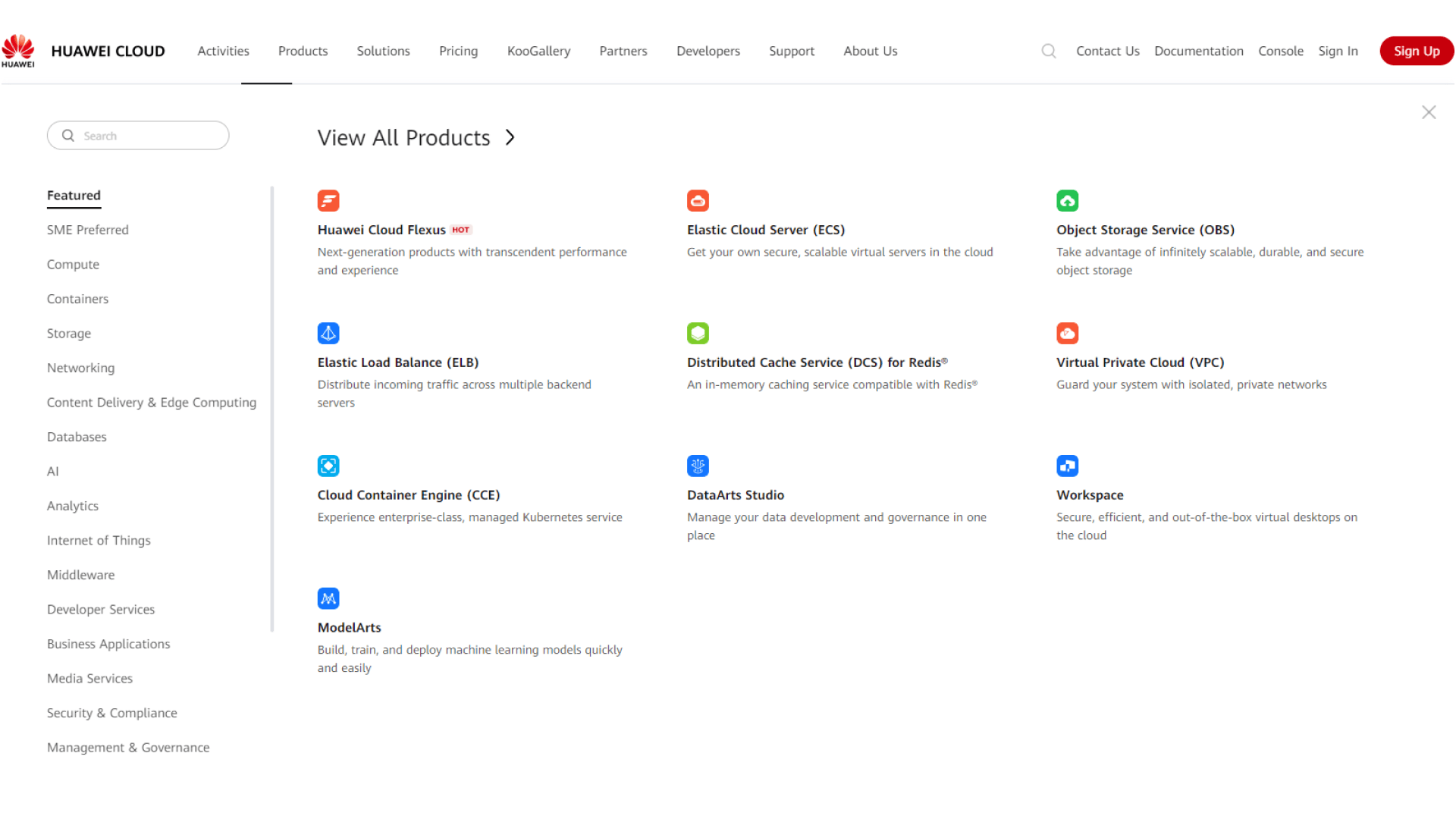
- Market Share: 2%
- Regions: 27
- Availability Zones: 75+
Huawei Cloud is a rising contender in the cloud services space, particularly in Asia, where it provides a range of solutions focused on artificial intelligence, Internet of Things (IoT), and big data analytics. Its Huawei AI suite includes development and deployment tools for creating intelligent applications, while IoT Cloud Services facilitate efficient device management and connectivity. GaussDB offers distributed database solutions that enhance data accessibility and performance. With 27 regions and 75 availability zones, Huawei Cloud is well-positioned to serve businesses in telecom and manufacturing, where data-driven insights and automation are key to operational efficiency. The provider is committed to innovation, making it a compelling choice for organizations looking to leverage AI and IoT technologies for business transformation.
9. DigitalOcean
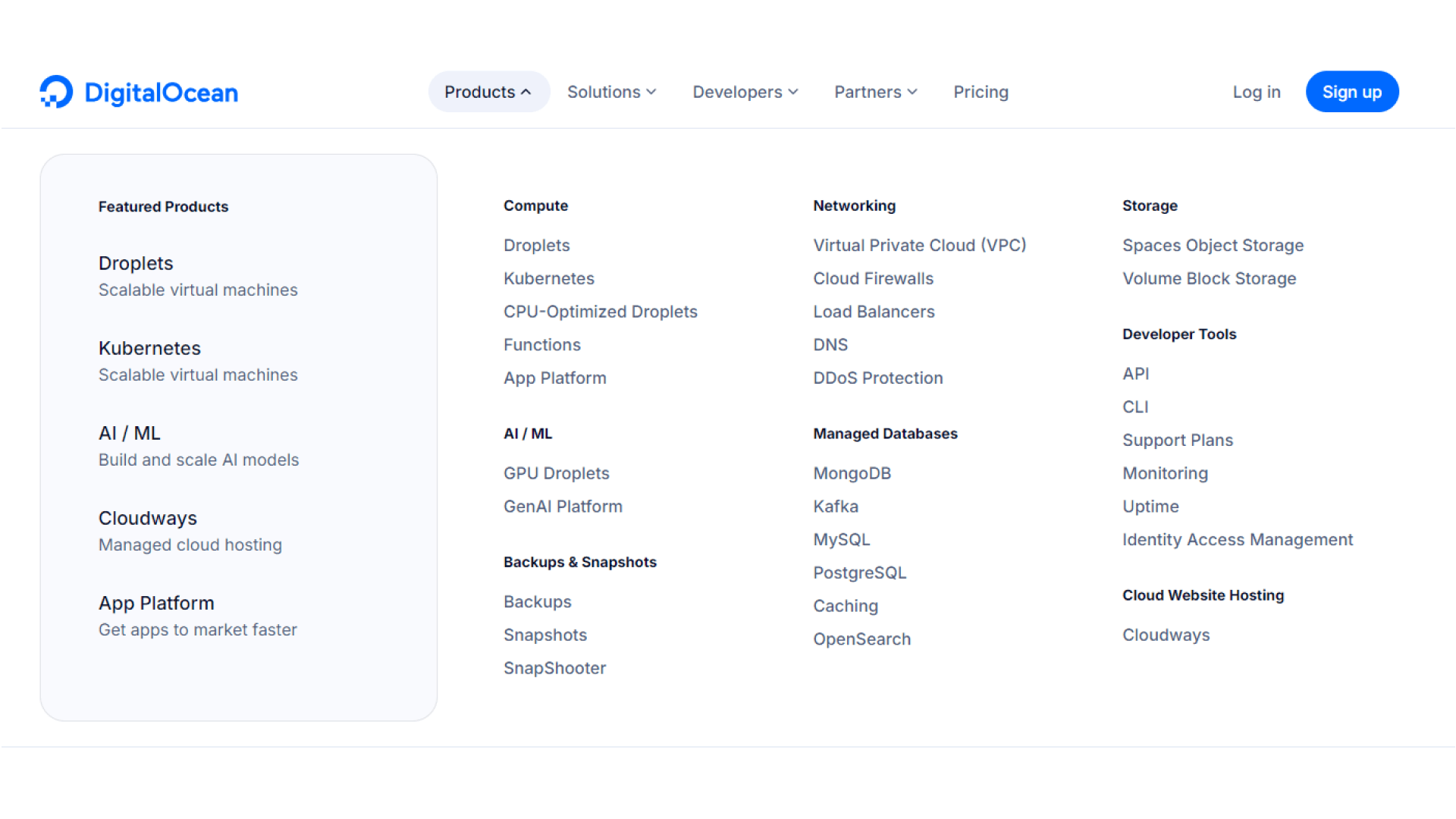
- Market Share: 1%
- Regions: 14
- Availability Zones: 15+
DigitalOcean is widely favored among startups and developers due to its simplicity and competitive pricing. The platform focuses on providing streamlined cloud services, making it easy for users to deploy and manage applications. Its Droplets service offers scalable virtual machines, while Spaces provides straightforward object storage solutions. DigitalOcean also offers managed Kubernetes clusters, allowing developers to efficiently manage containerized applications. With 14 regions and 15 availability zones, DigitalOcean ensures reliable performance and ease of use for small and medium-sized businesses. The provider's emphasis on developer experience and community support makes it an excellent choice for startups and SaaS businesses seeking to innovate without the complexity typically associated with cloud services.
10. Linode (Akamai)
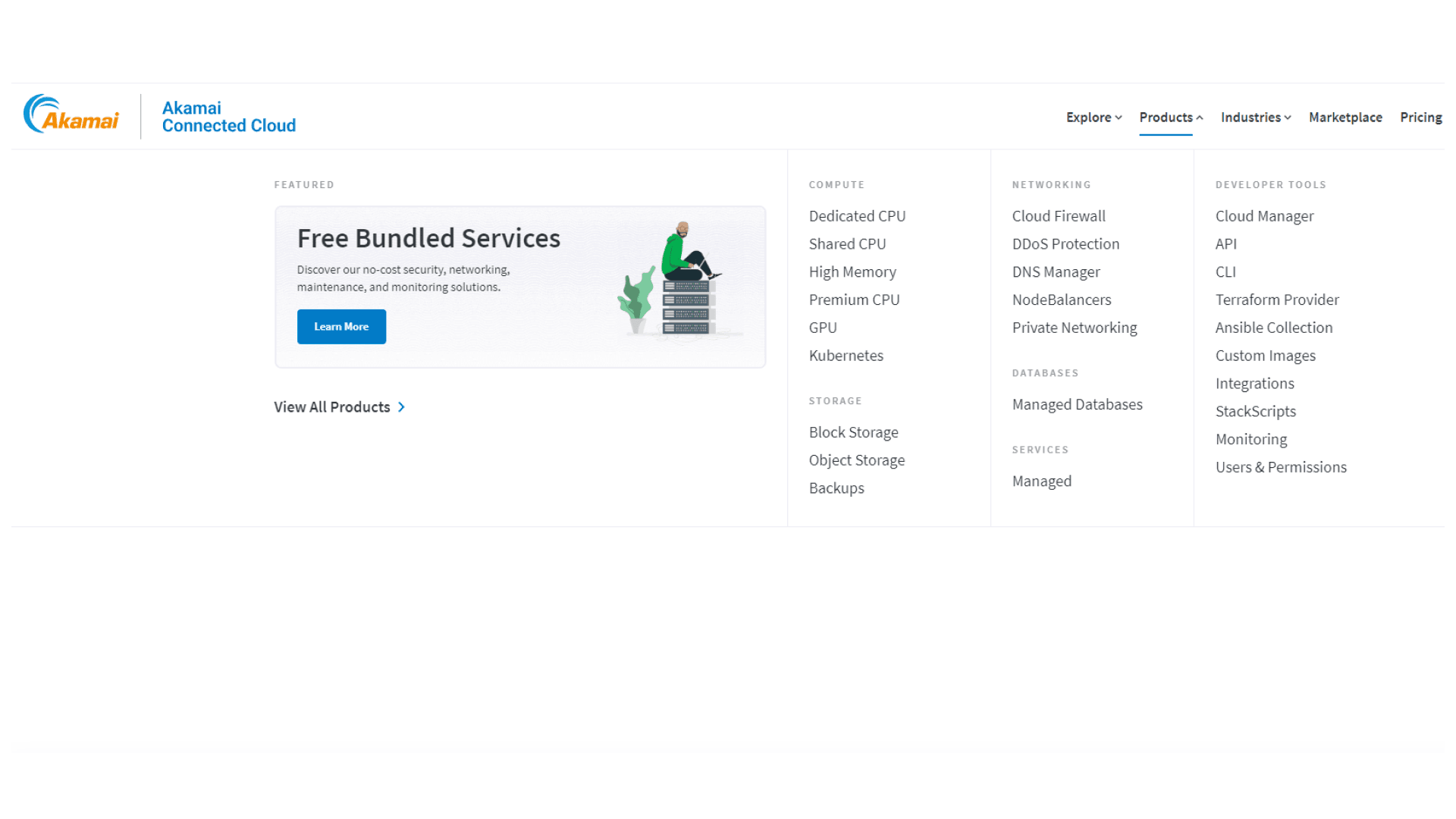
- Market Share: <1%
- Regions: 11
- Availability Zones: 11+
Linode, now part of Akamai, is renowned for its developer-friendly infrastructure and commitment to providing high-performance cloud solutions. The platform offers Linode Instances, which are virtual machines optimized for various workloads, along with Block Storage for high-speed data access. Linode’s Kubernetes service simplifies the deployment of containerized applications, making it easier for developers to manage complex workloads. With 11 regions and 11 availability zones, Linode provides users with reliable performance and a straightforward pricing model. Its focus on community engagement and support resources makes it an attractive option for developers and small businesses seeking affordable cloud solutions that do not compromise on performance or usability.
Comparison Table: Key Metrics of Top Cloud Providers
| Provider | Regions | Availability Zones | Market Share (%) | Specialization |
| AWS | 30+ | 99+ | 32% | Scalability and AI/ML |
| Microsoft Azure | 60+ | 200+ | 22% | Hybrid cloud, DevOps |
| Google Cloud | 35+ | 140+ | 11% | AI, Big Data, Analytics |
| IBM Cloud | 6 | 60+ | 4% | Enterprise solutions |
| Oracle Cloud | 45+ | 100+ | 3% | Databases, ERP |
| Alibaba Cloud | 28 | 92 | 5% | Big Data, E-commerce |
| Tencent Cloud | 10+ | 60+ | 2% | Gaming, Media |
| Huawei Cloud | 27 | 75+ | 2% | AI, IoT |
| DigitalOcean | 14 | 15+ | 1% | Developer-focused |
| Linode (Akamai) | 11 | 11+ | <1% | Affordable cloud solutions |
Value-Driven Cloud Service Providers: Who Stands Out in Affordability?
While AWS, Microsoft Azure, and Google Cloud dominate the cloud landscape with robust features, they may not be the most affordable options for startups, small businesses, or individual developers. For these users, cost-effectiveness and predictable pricing models are paramount. Small cloud providers offer lower entry points, flat-rate pricing, and minimal complexity, making them excellent choices for businesses with limited budgets.
Below is a detailed breakdown of affordable cloud providers and their value propositions:
| Provider | Service Type | Unique Value Proposition | Pricing Considerations |
| DigitalOcean | Virtual Machines (Droplets) | User-friendly compute with budget prices | Hourly and monthly pricing; ideal for startups |
| Linode (Akamai) | Compute & Block Storage | Transparent pricing with predictable costs | Flat-rate model ensures cost stability |
| Vultr | Cloud Compute & Bare Metal | Broad range of server options | Per-hour billing with pay-as-you-go flexibility |
| OVHCloud | VPS and Dedicated Servers | Discounted plans with robust infrastructure | Offers long-term discounts for heavy users |
Who Benefits?
- Startups: Access to affordable compute and storage with predictable costs.
- Developers: Tools with minimal management overhead, making them ideal for agile development.
- Small Businesses: Reliable flat-rate pricing models for controlled budgets.
Emerging Cloud Service Providers
Several promising cloud providers are thriving by serving niche markets, offering developer-friendly environments, affordable solutions, and dedicated customer support. These providers often fill the gaps that larger vendors may overlook, catering to specific industry needs and individual developers.
| Provider | Specialty | Best For |
| Vultr | Cloud compute & block storage | Developers needing flexible server options |
| Linode (Akamai) | Affordable compute services | SaaS startups and small businesses |
| Kamatera | Custom cloud infrastructure | Enterprises needing tailored solutions |
| OVHCloud | VPS & dedicated servers | Hosting providers and app developers |
Key Differentiators:
- High availability: Smaller providers ensure robust uptime to remain competitive.
- Specialized support: Direct access to knowledgeable support staff.
- Cost-effective solutions: Providers like DigitalOcean and Linode focus on predictable, low-cost services tailored to small projects.
These providers excel in offering high-performance solutions at a fraction of the cost charged by larger players.
Industry Trends in 2024
The cloud computing industry in 2024 is marked by optimization, cost control, multi-cloud adoption, and rapid advances in AI and machine learning. Below are the key trends shaping the landscape this year:
1. Managing Cloud Spend as a Top Challenge
With the growing complexity of cloud services, controlling cloud spend has become more difficult. Companies are actively adopting FinOps platforms to monitor usage and reduce waste, helping them stay within budget.
2. Cloud Usage Optimization Remains a Priority
For the seventh year in a row, businesses are focusing on right-sizing resources and optimizing usage. This involves eliminating underutilized services and using autoscaling to match demand.
3. Multi-Cloud Strategies Gain Momentum
To avoid vendor lock-in, multi-cloud adoption has become a standard practice. Enterprises now distribute workloads across AWS, Azure, and Google Cloud, improving availability and reducing risks.
| Multi-Cloud Provider Adoption | Usage Percentage |
| AWS | 80% |
| Microsoft Azure | 75% |
| Google Cloud | 60% |
| Others (Oracle, IBM, etc.) | 30% |
4. AI and Machine Learning Integration
Cloud providers are heavily investing in AI and ML services to meet growing demand. These technologies are increasingly being used for automation, predictive analytics, and operational efficiency.
5. Economic Volatility Driving Innovation
Despite global economic uncertainties, businesses are innovating with cloud services to drive growth and reduce operational costs. Companies are using cloud-native tools to streamline workflows and ensure sustainability.
These trends reflect how cloud providers are adjusting their offerings to meet the shifting demands of a dynamic market, ensuring businesses can remain agile and resilient.
Cloud Spending Surge: Insights into the 2024 Public Cloud Forecast
In 2024, cloud computing is changing fast, with big spending expected. Gartner reports that global spending on public cloud services is set to grow over 20%, reaching about $675.4 billion. This growth is mainly driven by advancements in generative AI and updates to applications. More businesses are turning to cloud solutions to use AI, machine learning, and big data analytics, which are key to staying competitive today.
IDC forecasts that spending on public cloud services will hit $805 billion in 2024 and could double by 2028. This shows how cloud services are transforming many industries. As AI tools become more integrated into cloud platforms, organizations are finding cloud services to be a cost-effective way to innovate, making it easier to create and launch new applications.
The demand for various cloud services—like Infrastructure-as-a-Service (IaaS), Platform-as-a-Service (PaaS), and Software-as-a-Service (SaaS)—is on the rise. IaaS is expected to grow significantly, especially for training and deploying AI models. This trend indicates that businesses are not just moving to the cloud; they’re also looking for providers that offer flexible and reliable solutions that fit their needs.
In today’s rapidly changing cloud landscape, CloudOptimo stands out as a reliable partner for businesses seeking to navigate their cloud journey. By utilizing the latest technologies and practical insights, CloudOptimo helps organizations optimize their cloud investments and maximize the value of their services. Whether you’re aiming to enhance efficiency or foster innovation, CloudOptimo is here to support your growth in the cloud.
Driving Cloud Efficiency: How CloudOptimo Optimizes AWS and Azure for You
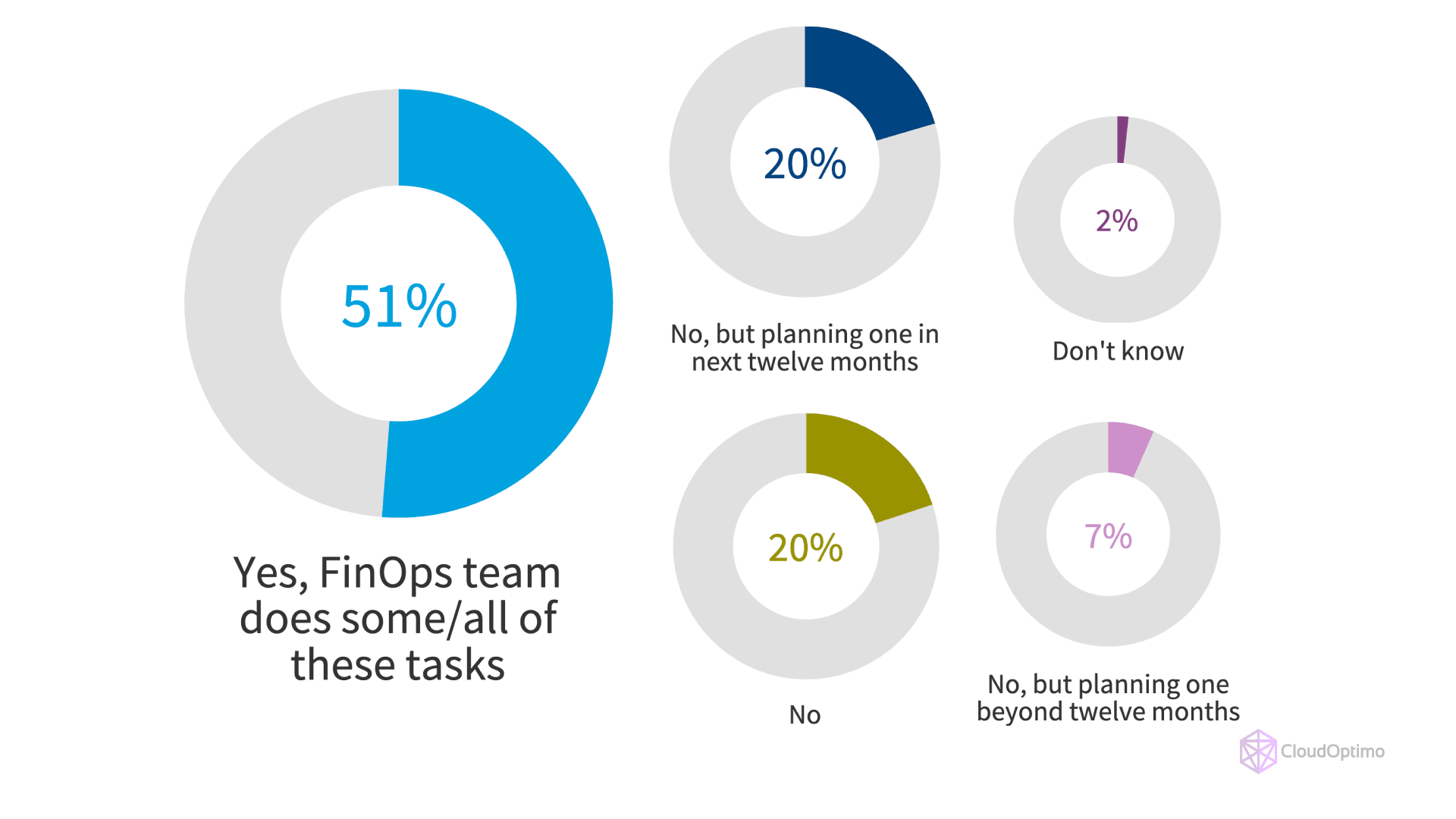
Source: 2024 State of the Cloud Report by Flexera
Does your company have a FinOps team to advise, manage, or execute cloud cost optimization strategies? According to a recent Flexera report, 51% of organizations currently have FinOps teams handling some or all of these tasks, while 20% plan to establish a FinOps team within the next 12 months. However, 20% reported that they do not have FinOps teams, and another 7% indicated they intend to form one after a year. This highlights the growing importance of effective cloud financial management as businesses navigate the complexities of cloud environments.
As you explore the top cloud service providers, CloudOptimo is here to help you maximize your experience with AWS and Azure. We understand that managing cloud environments can be complex, which is why we focus on simplifying processes while optimizing costs and enhancing security.
With CostCalculator, you can easily compare instance types and its pricing across AWS and Azure, helping you find the best fit for your specific needs. Our OptimoSizing tool provides tailored insights to right-size your resources based on actual usage, ensuring you save money without sacrificing performance. Additionally, OptimoSecurity helps you stay secure with continuous compliance monitoring and proactive security checks that align with industry standards, giving you peace of mind.
And that’s just the beginning—our suite includes many more tools designed to streamline your cloud operations and boost efficiency.
With CloudOptimo, you can truly unlock the potential of your cloud investments, allowing you to focus on what matters most—driving innovation and growth.
Ready to enhance your cloud operations? Request a demo today, and let’s see how we can make a difference together!

